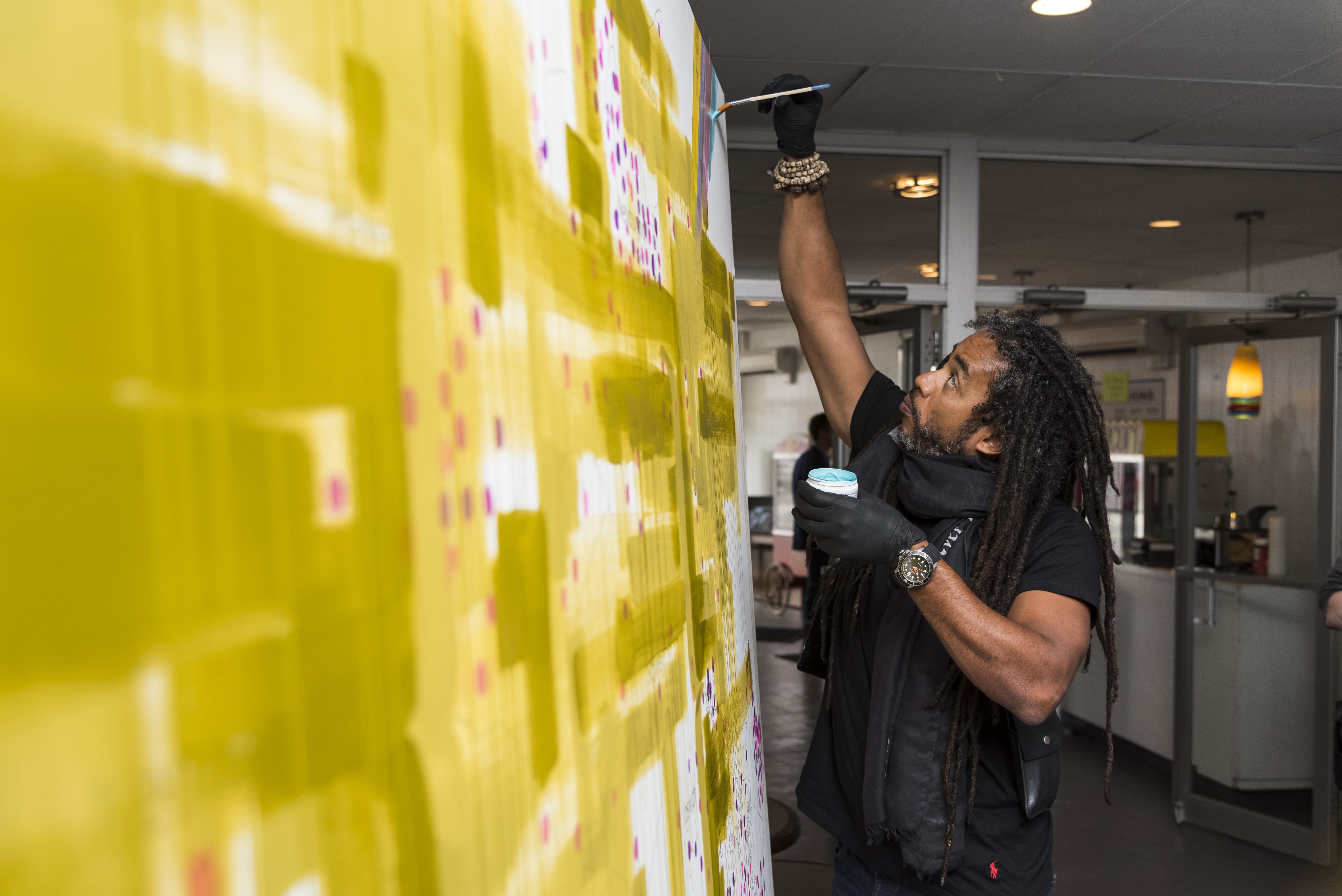BEVERLY – Hundreds of arts supporters, community leaders, city planners, business executives, religious leaders and educators convened at the historic Cabot Theatre Friday for the first Essex County Arts & Culture Summit.
The upbeat daylong event, sponsored by the Essex County Community Foundation and the Barr Foundation, introduced the Creative County Initiative, which supports partnerships to create public artworks, performances or installations that contribute to the quality of life in the region.
A number of guest speakers, including one from London, shared success stories of how cross-sector collaborations fostered positive change in their communities. Equally important, the event offered networking opportunities for attendees and a series of breakout sessions that focused on such topics as “Building Public Will for the Arts in our Cities and Towns” and “Shared Resources for a Stronger Arts Ecosystem.”
The Lynn area was well represented. Principals and members of Raw Art Works, Beyond Walls, Brickyard Collective, Downtown Lynn Cultural District, Lynn Museum/LynnArts, Centerboard, Lynn Economic Opportunity and North Shore Alliance of LGBTQ Youth were among those who participated.
Also represented were LynnfieldArts.org, Marblehead Little Theatre, Marblehead Arts Association, Marblehead Museum, Peabody Essex Museum, North Shore Music Theatre, Reach Arts, Montserrat College of Art, Endicott College, North Shore Community College, Salem State University, Essex County Greenbelt, Essex National Heritage Committee, Northeast Arc, Historic New England, Trustees of Reservations, and more.
The quick takeaways from the experts: Public art has a transformative power, arts and culture is a major economic driver, arts and culture is good for business, and collaborations and making connections are crucial for success.
Anita Walker, executive director of the Massachusetts Cultural Council, said there are 43 cultural districts in the state, more than in any other state. Lynn and Beverly have earned the cultural district designation, benefiting from some of the $20 million MCC has invested in Essex County in the past 40 years.
Beverly Mayor Michael Cahill, Salem Mayor Kim Driscoll and Steve Immerman, president of Montserrat College which is based in downtown Beverly, talked of how arts organizations and collaborators have helped revitalize those neighboring cities.
Casey Soward, executive director of the Cabot, said the theater hosts 80 concerts a year, shows movies regularly, became a partner in the Salem Film Festival and works closely with the city, downtown business organizations and business owners.
“The Cabot brought 70,000 visitors to Beverly (last year) through our programming, and many of those dined in area restaurants and shopped in local stores.”
Keynote speaker Mark Davy, founder of U.K.-based FutureCity which is helping Boston develop a creative district in the Huntington Avenue area, detailed numerous triumphs, including the lighting of every London bridge—the connectors of one neighborhood and the next. In every success, he said, “the civic, the commercial and the creative came together.”
Anne Haynes, director of MassDevelopment’s Transformative Development Initiative, praised ongoing efforts in Lynn and Peabody.
“Lynn is building on one success to the next,” she said. “Positive change is taking place there. Peabody, with the help of a couple of small TDI grants, has made great strides. Northeast Arc’s Breaking Grounds coffeehouse and new Black Box Theatre are helping to energize that downtown.”
Drew Russo, executive director of Lynn Museum, termed this summit “impressive. We haven’t had a county-wide convening like this, certainly not since 2015 when I joined the museum.”
By the end of the day, he and most attendees were invigorated and enthused about the state of arts and culture in Essex County.

